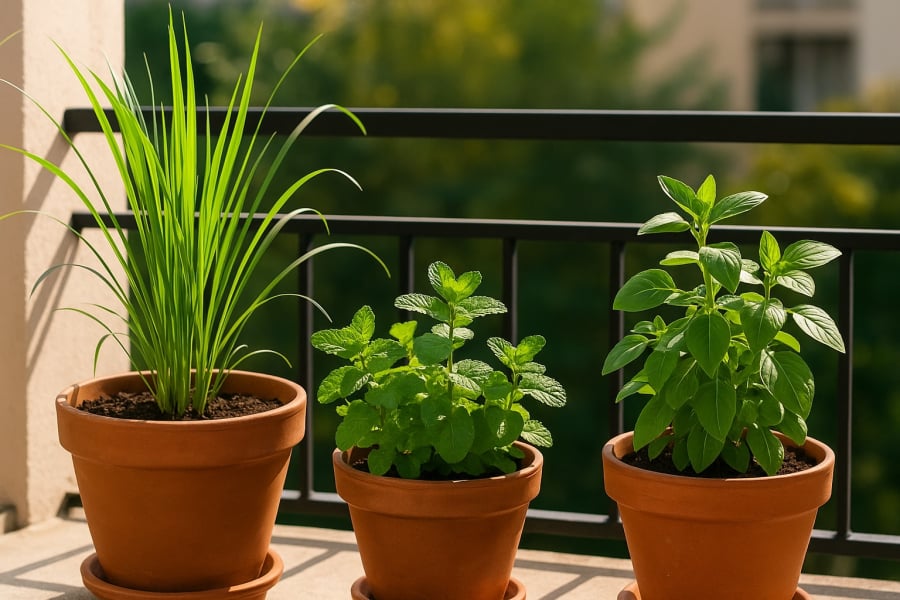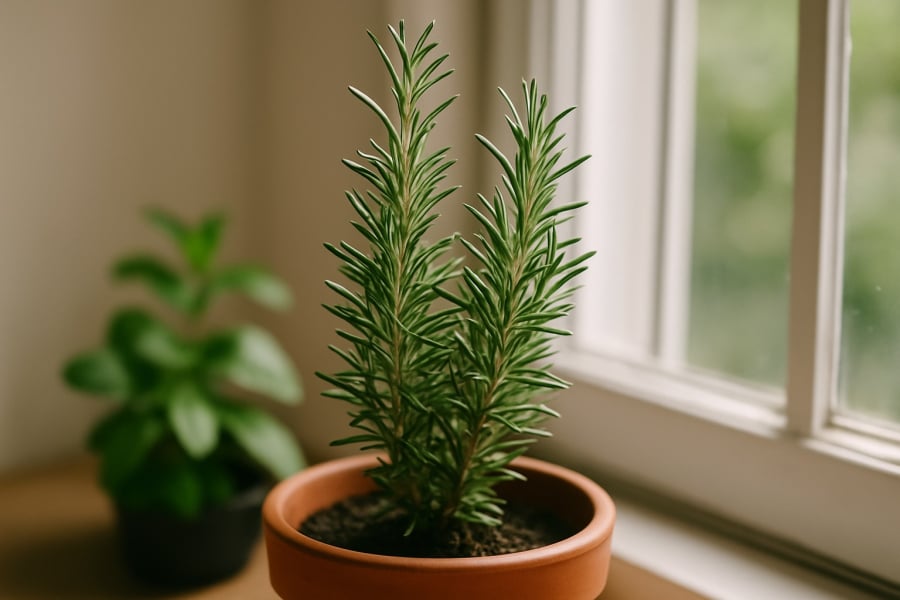Why Use Plants to Repel Mosquitoes?
Incorporating greenery into your living space not only creates a refreshing and relaxing atmosphere but also serves as a natural, chemical-free way to keep mosquitoes at bay. Certain plants emit distinctive essential oils that mosquitoes find highly repellent, thereby reducing the risk of mosquito bites and effectively preventing dengue fever.
According to medical experts, using plants as a mosquito repellent is a natural, biological method that does not harm your health and is especially safe for children and the elderly. The Institute of Malariology, Parasitology, and Entomology affirms that certain plants emit natural fragrances from their essential oils, which can deter mosquitoes while contributing to a cleaner, more pleasant, and aesthetically pleasing environment for your home.
7 Beautiful and Effective Mosquito-Repelling Plants
Lemongrass: Nature’s Own Mosquito Repellent
Lemongrass is not just a familiar culinary herb but also an effective “bodyguard” against mosquitoes. The citrusy scent of lemongrass contains citral and geraniol, two compounds that mosquitoes detest. You can plant lemongrass in pots on your balcony, by the front door, or even in small pots near your windows.
Pro tip: Bundle lemongrass leaves and boil them to use the infused water to mop your floors or fumigate your rooms—a sure way to ramp up mosquito-repelling effects.

Lemon Balm: A Soothing Scent
Lemon balm is a member of the mint family, emitting a gentle, soothing lemon fragrance. Well-suited to Vietnam’s climate, this plant is easy to grow and rarely bothered by pests. It not only repels mosquitoes but also helps relax the mind and promotes better sleep.
Mint: Cool and Mosquito-Free
The menthol in mint’s essential oil can numb mosquitoes’ sense of smell, preventing them from locating their next blood meal. Place pots of mint in your bedroom, kitchen, or by the front door to naturally safeguard your family from mosquitoes.
Mint also makes a refreshing tea or detox water, aiding in body cleansing and heat relief.
Basil: Delicious in Dishes and a Mosquito Deterrent
The mild, spicy fragrance of basil keeps mosquitoes at bay. Growing basil in your kitchen garden or backyard not only adds convenience but also enriches your daily meals.
Some households also gently rub basil leaves on their skin as a simple yet effective mosquito repellent.
Marigold: Beautiful Blooms, Mosquito-Free Homes
Marigolds not only repel insects but also brighten up your living space. These flowers contain pyrethrum, a natural insecticide found in many mosquito repellents. Plant marigolds near entrances, on window sills, or on your balcony to beautify your home while keeping mosquitoes at bay.
Ngũ Gia Bì: A Lucky Charm and Mosquito Repellent
In feng shui, Ngũ Gia Bì symbolizes stability, unity, and good fortune. This easy-to-care-for plant is believed to repel mosquitoes due to its unique essential oils. Place it indoors or in your office to enjoy its protective benefits.
Rosemary: Air Purifier and Gentle Mosquito Repellent
Rosemary’s essential oil emits a pleasant fragrance that humans enjoy but mosquitoes detest. Besides repelling insects, rosemary also reduces stress, enhances focus, and improves memory. Growing rosemary near your workspace or window can bring unexpected benefits.

Some Tips for Growing Mosquito-Repelling Plants
- Avoid water stagnation in pots: Mosquitoes often lay their eggs in stagnant water, so ensure proper drainage in your plant pots.
- Regular pruning: Keep your plants well-pruned to maintain airflow and prevent moisture buildup, which can attract mosquitoes.
- Combine with other mosquito prevention methods: Use mosquito nets while sleeping, swat mosquitoes, and eliminate mosquito larvae from water sources.






























